In brief: A curriculum for students of 'open source' as it is practiced by open source software developers. Whether you’re a newcomer to open source or you’ve been involved with the practice for some time, this curriculum aims to provide a comprehensive overview of everything open source is, and aspires to be.
Open-Source Curriculum (v0.2.0)
This document aspires to become a comprehensive reading list for anyone seeking to deeply understand ‘openness’ as an ideology for knowledge work, a distributed movement, a commercial industry and more yet to come.
Open Source as a subset of openness
Wikipedia
Openness
Openness is an overarching concept that is characterized by an emphasis on transparency and collaboration. That is, openness refers to "accessibility of knowledge, technology and other resources; the transparency of action; the permeability of organisational structures; and the inclusiveness of participation". Openness can be said to be the opposite of closedness, central authority and secrecy. == Openness concept == Openness has been attributed to a wide array of approaches in very different contexts as outlined below.
Openness is an overarching concept or philosophy that is characterized by an emphasis on transparency and collaboration. That is, openness refers to "accessibility of knowledge, technology and other resources; the transparency of action; the permeability of organisational structures; and the inclusiveness of participation". Openness can be said to be the opposite of closedness, central authority and secrecy.
Since openness is such an expansive subject, we will limit ourselves to a narrow focus on openness as it pertains to software development and the internet-connected world. In software and tech, 'open source' is the most commonly practiced form of openness.
As soon as you start delving into software openness, you'll begin hearing the term open source. Before long you'll also learn that there is a difference between what's called "open source" and "free". And you'll learn that these terms are defined both formally and informally. It's important to be aware that no one owns these terms. There is no central authority to say what "open source" means, just like there's no central authority on the term "democracy".
Open Source (sometimes capitalized!) isn't limited to just software. Any thing with a blueprint that enables said thing to be inspected, duplicated or modified can be regarded as open source. This blueprint could be anything from the complete specification of an airplane, all the way down to the genetic code of a seed. The openness movement therefore extends far beyond the confines of software.
From now on we will talk about the "openness movement" and "open source" somewhat interchangeably. Like it or not, "open source" is being adopted into the mainstream with new meanings attached to it that are way outside the scope of its origins. See for instance "Open Sourced" by Vox, a publication that is largely values-aligned with the open source movement, but has nothing to do with software licensing and open source practices.
Curriculum highlights
- What “open source” means
- How openness is applied in software development
- Economic & personal sustainability
- Software ethics
In the open source spirit, this curriculum is itself open source, I.e. permissively licensed. We will diligently review the change requests that are sent our way, with the intent of eventually having multiple co-editors. If someone strongly disagrees with how the editors exercise their final-edit powers, feel free to fork this curriculum. If you don’t yet know what that means, you’ll learn very soon!
What is open source
If you're absolutely new to the very concept of open source, start by watching these two introductory videos.
- YouTube
Enjoy the videos and music you love, upload original content, and share it all with friends, family, and the world on YouTube.
- YouTube
Enjoy the videos and music you love, upload original content, and share it all with friends, family, and the world on YouTube.
(HELP WANTED: Are you aware of a text/graphical writeup that explains open source in similar fashion to the videos above? We need one of those!)
Creative Commons is also a very plain-English way of understanding the open source ethos through the lense of licensing. CC licenses are primarily intended for artifacts such as books, images and music.
Creative Commons
Share your work - Creative Commons
Use Creative Commons tools to help share your work. Our free, easy-to-use copyright licenses provide a simple, standardized way to give your permission to share and use your creative work — on conditions of your choice. You can adopt one of our licenses by sharing on a platform, sharing your work with an open license,…
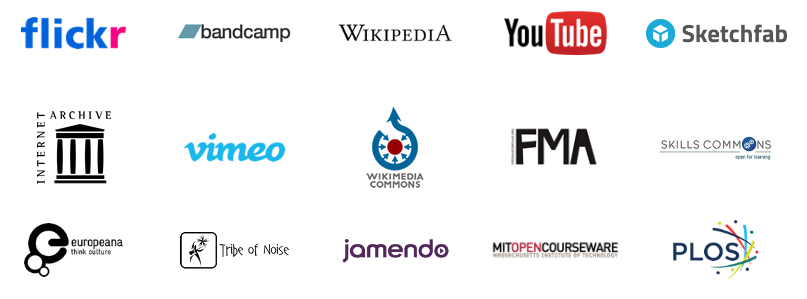
https://creativecommons.org/use-remix/cc-licenses/
This curriculum will focus on software because...
- Open source software is arguably the furthest ahead of any openness movement.
- The author(s) of this curriculum are chiefly familiar with software.
For a thorough introduction to open source as a Good Software practice and theory of change, read Open Source Explained, which is effectively the next 8-24 hrs learning resources compressed down to 1 hour.
Open Indie
Open Source Explained
Musings on the concept of ‘open source’, in the broadest possible definition of the term. Also an invitation to become a participant in ...

Musings on the concept of ‘open source’, in the broadest possible definition of the term.
Also an invitation to become a participant in and contributor to The Commons: our common wealth of knowledge as conscious beings.
Further Reading:
History & Status Quo
Wikipedia
History of free and open-source software
The history of free and open-source software begins at the advent of computer software in the early half of the 20th century. In the 1950s and 1960s, computer operating software and compilers were delivered as a part of hardware purchases without separate fees. At the time, source code—the human-readable form of software—was generally distributed with the software, providing the ability to fix bugs or add new functions. Universities were early adopters of computing technology.
https://opensource.org/history
https://venturebeat.com/2015/12/06/its-actually-open-source-software-thats-eating-the-world/
https://www.ufried.com/blog/oss_1_rise_of_oss/ https://www.ufried.com/blog/oss_2_misconceptions/ https://www.ufried.com/blog/oss_3_today/
The culture war at the heart of open source
Blog post: The culture war at the heart of open source by Steve Klabnik
What comes after open source
Blog post: What comes after open source by Steve Klabnik
https://blog.timescale.com/blog/open-source-demise-of-proprietary-software-a49f73f54165/
Retort: https://news.ycombinator.com/item?id=21873337
Ideology
Central authorities for the term “open source”
There is no single authority that ratifies what can be deemed "open source" or not. There are however a few organisations that are widely regarded as highly trusted, and many people believe that their definitions of "open source" should be strictly adhered to. Chief among these is the Open Software Initiative.
opensource.org by Open Software Initiative
Open Source Initiative - Ken Coar
The Open Source Definition (Annotated)
The sections below appear as annotations to the Open Source Definition (OSD) and are not a part of the OSD. A plain version of the OSD without annotations can be…
Open Source Initiative - Stefano Maffulli
Frequently Answered Questions
Here are answers to questions we are frequently asked. If you have a question not addressed here, please contact us. Basics of Open Source Distributing and Using Open Source Software Commerce…
❕ Not to be confused with opensource.COM, an advocacy site for open source by the company Red Hat:
opensource.com by Red Hat
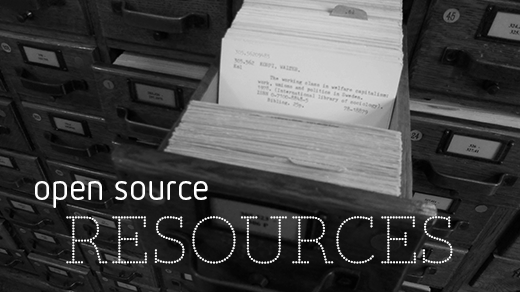
Opensource.com
The open source way
The open source way is open exchange, participation, rapid prototyping, inclusive meritocracy, and community.
Opinion pieces on the open source definition
Medium - https://medium.com/@nayafia
Evolving the term “open source
Let’s try this again.
Medium - https://medium.com/@nayafia
I hate the term “open source
It doesn’t accurately reflect how people are building today anymore.

/dev/lawyer
#wontfix
endorsements can’t fix the Open Source Definition
/dev/lawyer
Open Source” Is Nobody’s Property
if OSI owned it, they wouldn’t be so touchy about it
/dev/lawyer
Tyranny of Permissionlessness
open source’s narrow focus further empowers those with other ways to exclude
Against the Two-Party System
in defense of the forgotten third way in open software licensing
/dev/lawyer
I Don’t Want to Know What “Open Source” Means
I am he as you are he as you are me and we are all on GitHub.
Why make anything open source
At first glance, open source sharing might just seem like charitable giving. A philanthropic endeavor to make the world we inhabit more open to scrutiny and modification. Yet while a sense of charity is certainly felt by many open source contributors, the practical benefits of open source licensing also align perfectly well with egoistic altruism as well as common-sense business strategy.
Economic incentives aside, the open source development methodology is simply an easier, more efficient way to develop software. Openly accessible knowledge gives way to more and better knowledge.
Non-zero-sum
- https://www.britannica.com/topic/positive-sum-game
- https://conceptually.org/concepts/zero-vs-positive-sum
- https://youtu.be/wcZFIy2mfyE
Intrinsic Motivation
TED - Dan Pink
Dan Pink: The puzzle of motivation
Career analyst Dan Pink examines the puzzle of motivation, starting with a fact that social scientists know but most managers don't: Traditional rewards aren't always as effective as we think. Listen for illuminating stories -- and maybe, a way forward.
"Open Source" vs "Free Software"
- YouTube
Enjoy the videos and music you love, upload original content, and share it all with friends, family, and the world on YouTube.
What is Free Software? - GNU Project - Free Software Foundation
Since 1983, developing the free Unix style operating system GNU, so that computer users can have the freedom to share and improve the software they use.
Privilege & Inclusivity
NPR
Why Isn't Open Source A Gateway For Coders Of Color?
Theoretically, open-source software development should be more accessible to people underrepresented in tech, like blacks, Latinos, and women. But there are still big, less-obvious barriers to entry.

Big Ruby - Open Source Isn't For Everyone, But It Could Be | ashe dryden
- Dries Buytaert
The privilege of free time in Open Source
Open Source communities often incorrectly believe that everyone can contribute. Unfortunately, not everyone has equal amounts of free time to contribute.
https://jlord.us/blog/osos-talk.html
https://www.techrepublic.com/article/is-getting-paid-to-write-open-source-a-privilege-yes-and-no/
Ethics
Is open source biased towards being for “good”?
Medium - https://medium.com/@johnmark
Why Open Source Failed
(If you like this essay, you may be interested in my follow-up, “Save Open Source, Save the World”)

DEV Community
Open Source is Broken
The Open Source movement, as championed by the OSI, prizes absolute openness above all other concerns...
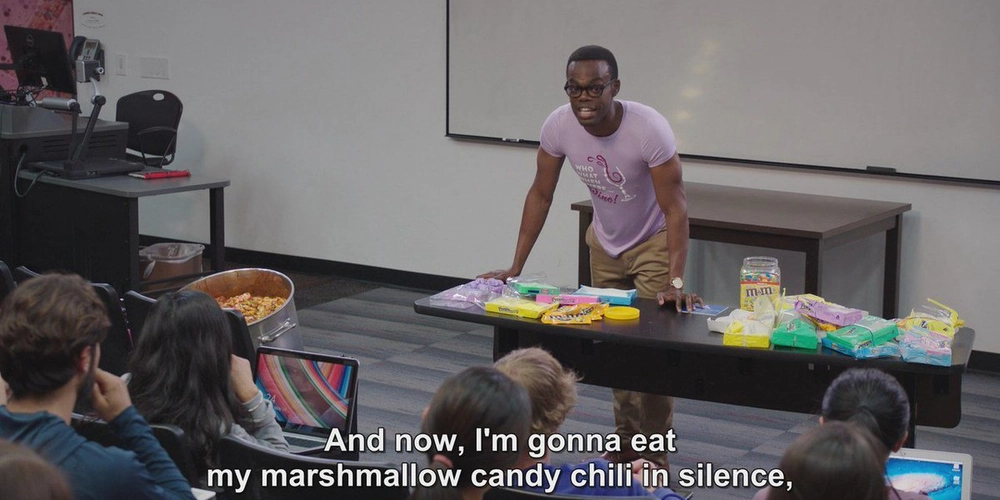
The Hippocratic License 3.0: An Ethical License for Open Source.
Version 1.2 of the Hippocratic License, an Ethical Source license created by the Organization for Ethical Source.

Practical Data Ethics
Free, online course from fast.ai and USF Data Institute covering disinformation, bias & fairness, ethical foundations, practical tools, privacy & surveillance, the silicon valley ecosystem, and algorithmic colonialism

Industry
CNBC
How open-source software took over the world
Software used to be proprietary, but over the past decade, open-source tools have seen a meteoric rise. This software is freely available and is developed collaboratively, maintained by a broad network that includes everyone from unpaid volunteers to employees at competing tech companies. Here's how the business model works.

- YouTube
Enjoy the videos and music you love, upload original content, and share it all with friends, family, and the world on YouTube.
(See the upcoming Civility chapter for a follow-up on Linus’ behavior. Linus himself has made some apologies in later times. Rigorous debate and politeness are in no way mutually exclusive.)
Changelog
Open Source podcast episodes
All things open source.
Business Differentiators
Ben Balter
Why open source
Twenty five microeconomic, macroeconomic, moral, transparency, participatory, and personal motivations why you and your organization should consume, publish, contribute to, and support open source.
/dev/lawyer
Selective Mythology
defining open source for fun and profit, in the shadow of the enterprise
Changelog
There and back again (Dgraph's tale) with Manish Jain (Changelog Interviews #322)
This week we talk with Manish Jain about Dgraph, graph databases, and licensing and re-licensing woes. Manish is the creator and founder Dgraph and we talked through all the details. We covered what a graph database is, the uses of a graph database, and how and when to choose a graph database over a relational database...
Changelog
There and back again (Dgraph's tale) with Manish Jain (Changelog Interviews #322)
This week we talk with Manish Jain about Dgraph, graph databases, and licensing and re-licensing woes. Manish is the creator and founder Dgraph and we talked through all the details. We covered what a graph database is, the uses of a graph database, and how and when to choose a graph database over a relational database...
Changelog
There and back again (Dgraph's tale) with Manish Jain (Changelog Interviews #322)
This week we talk with Manish Jain about Dgraph, graph databases, and licensing and re-licensing woes. Manish is the creator and founder Dgraph and we talked through all the details. We covered what a graph database is, the uses of a graph database, and how and when to choose a graph database over a relational database...
Wikipedia
Vendor lock-in
In economics, vendor lock-in, also known as proprietary lock-in or customer lock‑in, makes a customer dependent on a vendor for products, unable to use another vendor without substantial switching costs. The use of open standards and alternative options makes systems tolerant of change, so that decisions can be postponed until more information is available or unforeseen events are addressed. Vendor lock-in does the opposite: it makes it difficult to move from one solution to another. Lock-in costs that create barriers to market entry may result in antitrust action against a monopoly.
Business Strategy
Wikipedia
Business models for open-source software
Software companies focusing on the development of open-source software (OSS) employ a variety of business models to solve the challenge of making profits from software that is under an open-source license. Each of these business strategies rest on the premise that users of open-source technologies are willing to purchase additional software features under proprietary licenses, or purchase other services or elements of value that complement the open-source software that is core to the business. This additional value can be, but not limited to, enterprise-grade features and up-time guarantees (often via a service-level agreement) to satisfy business or compliance requirements, performance and efficiency gains by features not yet available in the open source version, legal protection (e.g., indemnification from copyright or patent infringement), or professional support/training/consulting that are typical of proprietary software applications. Historically, these business models started in the late 1990s and early 2000s as "dual-licensing" models (for example MySQL), and they have matured over time, giving rise to multiple variants as described in the sections below.
Andreessen Horowitz
Open Source: From Community to Commercialization | Andreessen Horowitz
Peter Levine tracks the rise of open source software and provides a practical, end-to-end framework for turning an open source project into a successful business.
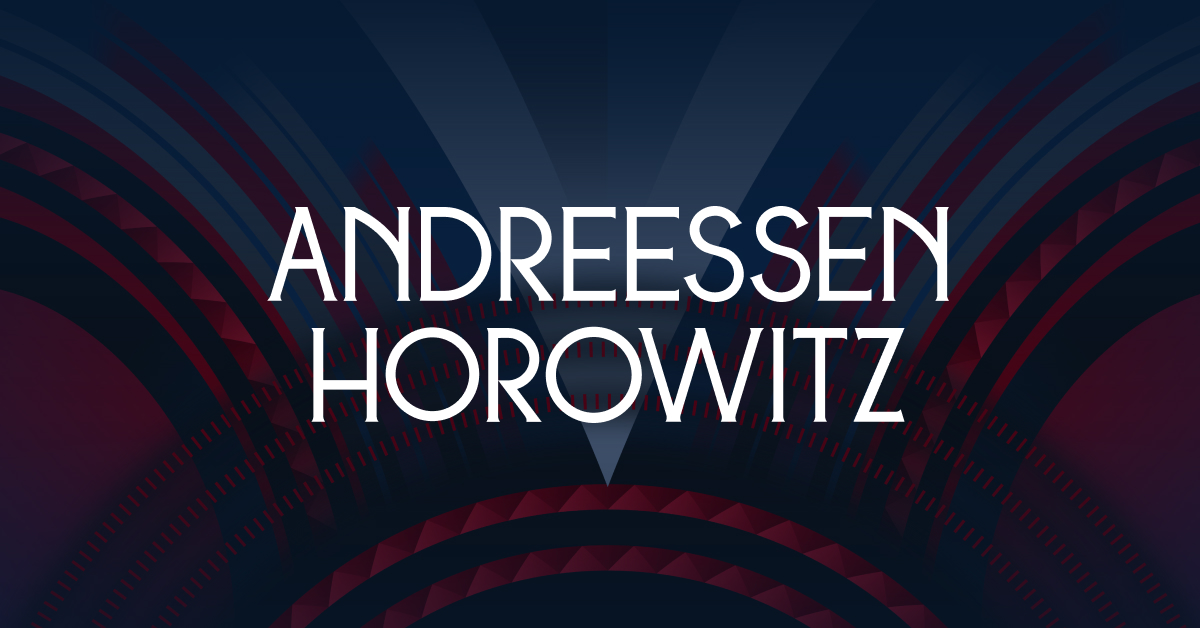
Copyleft Currents - heatherjmeeker
Revisiting the Open Source Business Model
In the past few years, many companies have come to me asking for help drafting a “new open source license.” As a rule, drafting a new open source software license is not a good idea, s…
https://blog.opentechstrategies.com/category/open-source-at-large/
https://medium.com/blossom-capital/successful-open-source-business-models-2709e831e38a
Indie Open Source
Indie Open Source
free business model resources for independent open source software developers

https://nythesis.com/open-courses/commercial-open-source-startups/ (defunct)
Open Core
https://www.coss.community/jj/open-core-definition-examples-tradeoffs-ahi
https://www.coss.community/jj/coss-company-value-creation-and-capture-fundamentals-3829
https://www.coss.community/cossc/polyform-and-open-core-2oh6
Entrepreneurship
Why Would Bootstrapped Founders Raise Capital | Calm Company Fund
So in this scenario, you’ve got a nice software business that’s maybe not a rocket ship but it’s growing steadily, some base level of monthly recurring revenue, and customers are fairly happy and stick around.
Should you raise money? – Reilly Chase, Calm Company founder | Calm Company Fund
Reilly Chase’s company HostiFi was the first company we ever invested in from Calm Company Fund 1.
.png)
Product & Strategy | Calm Company Fund
At the core of every business is a problem it solves or value it creates. It’s critical that entrepreneurs learn to explain to customers, employees, investors and other stakeholders what the value proposition is and how your product creates that value.
Shared Earnings Agreement | Calm Company Fund
Our Shared Earnings Agreement (SEAL) investment structure keeps founders in control and aligns us with your business. We win when you win, on your terms.

Shared Earnings Agreements with multiple investors | Calm Company Fund
Part of launching any new financing instrument is increasing the number of investors that are comfortable using it for investments.
Founder Break-Even Calculator | Calm Company Fund
A downloadable spreadsheet to help founders figure out how much capital does their business needs to get to Founder Break-even (ie., Monthly Recurring Revenue covers founders' living expenses).
Sustainability
Ford Foundation
Roads and Bridges: The Unseen Labor Behind Our Digital Infrastructure - Ford Foundation
Society runs on software but software building tools are buckling under the demand. In this report, Nadia Eghbal addresses the challenges.
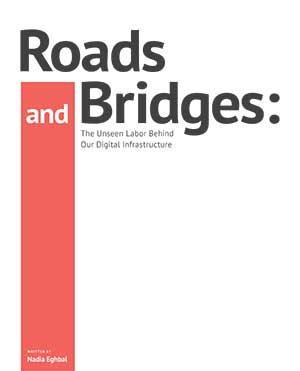
- Dries Buytaert
Balancing Makers and Takers to scale and sustain Open Source
To scale and sustain Open Source ecosystems in a more efficient and fair manner, Open Source projects need to embrace new governance, coordination and incentive models.
Law Offices of Kate Downing - Kate Downing
The Great Open Source Shake-up
The past year and a half has seen a number of open source and open source-ish companies like Elastic, Confluent, and MongoDB change licenses on certain products, moving away from traditional open s…
/dev/lawyer
The Great Open Source Shake-Up
more mandatory reading from Kate Downing
A Space for Open Source Sustainers
SustainOSS
A Space for Open Source Sustainers
Further Reading:
- Governing the Commons by Elinor Ostrom
- https://www.resilience.org/stories/2013-11-01/governing-the-commons-by-elinor-ostrom-review/
- https://changelog.com/rfc
- https://podcast.sustainoss.org/
Social pressure & Burnout
Read the Tea Leaves - Nolan Lawson
What it feels like to be an open-source maintainer
Outside your door stands a line of a few hundred people. They are patiently waiting for you to answer their questions, complaints, pull requests, and feature requests. You want to help all of them, but for now you're putting it off. Maybe you had a hard day at work, or you're tired, or you're just…
Sustainable Open Source: The Maintainers Perspective or: How I Learned to Stop Caring and Love Open Source
Methodology
Open source is also a way of working.
Open Source Methodologies
Apache
How the ASF works | Apache Software Foundation
Red Hat’s development model
The Red Hat development model begins upstream in the community and ends with stabilized, enterprise-ready downstream software.
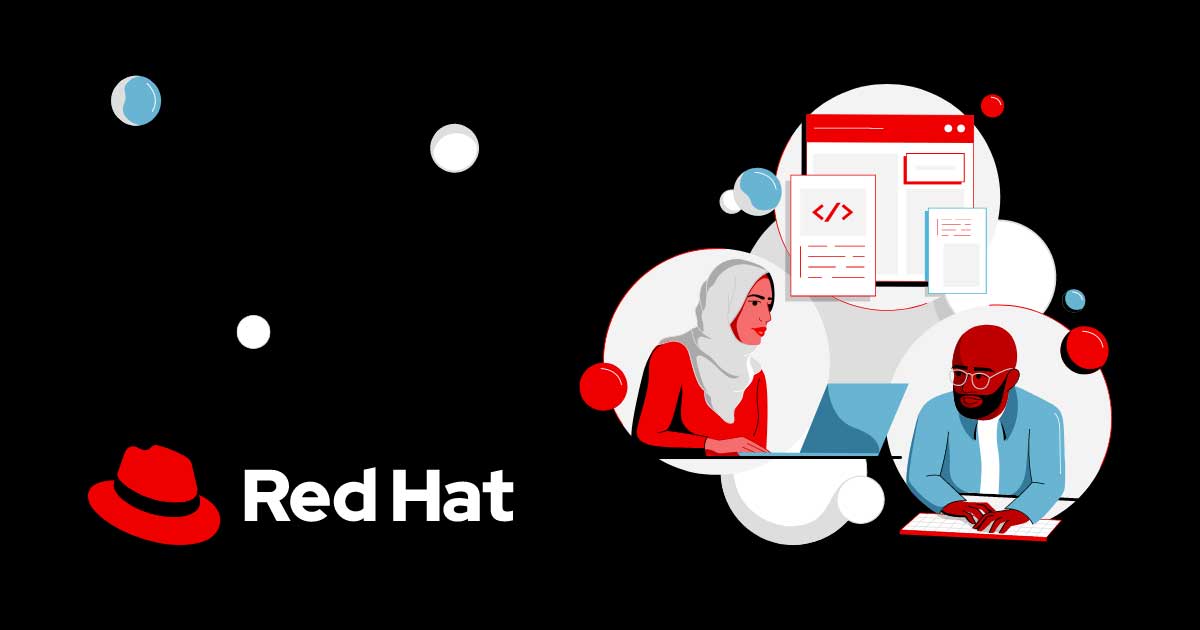
Opensource.com
The Open Organization
Join the open organization community conversation about open organizational design and culture. Read more about the ways open principles like transparency, collaboration, and community are changing the way we work, manage, and lead.
Open Source Guides
Open Source Guides
Learn how to launch and grow your project.

GitHub
sfosc/SOCIAL_CONTRACT.md at master · sfosc/sfosc
The Sustainable Free and Open Source Community Website - sfosc/sfosc
Inner Source
Wikipedia
Inner source
InnerSource is the use of open source software development best practices and the establishment of an open source-like culture within organizations for the development of its non-open-source and/or proprietary software. The term was coined by Tim O'Reilly in 2000 in his column. == Motivation == Open source is recognized to be capable of delivering high quality software. Furthermore, the open collaboration in open source enables collaboration even between competitors (e.g.
Inner source is the use of open source software development best practices and the establishment of an open source-like culture within organizations. The organization may still develop proprietary software, but internally opens up its development.
/dev/lawyer
Outer Source
open software by closed methods
Distributed Work
5 Remote-work Lessons From the Open-source Community
The open-source movement has a few things it can share about remote working with the wider software-development community.

https://basecamp.com/books/remote
Community
The Open Source Community
Opensource.com
What open source community?
Is there such a thing as the open source community? A related question was covered here before, about whether the word community means anything anymore. But, I still see the term “the open source community” regularly lobbed.
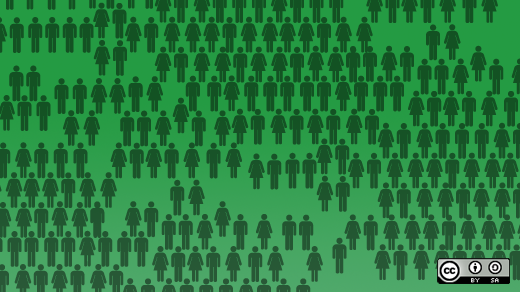
The global open source community is an international group of independent collaborators that develops and maintains freely available software, emphasizing transparency, inclusivity, and diversity. Participation can lead to a sense of belonging, skill development, networking opportunities, and the thrill of contributing to a public good.
Medium - https://medium.com/@djhersh
Community Software is Dead
I just got back into the “community software” category after an eight year hiatus. The customers, analysts and consultants are still…

The traditional model of community-driven software development is no longer effective due to fragmentation and lack of vision. Instead, companies should focus on building tribes of like-minded individuals who work together to create software that meets their specific needs.
Medium - https://medium.com/@adamhjk
We need Sustainable Free and Open Source Communities
Sustainable Free and Open Source software is not about business models, it’s about building sustainable communities.

Sustainable communities around open source software are crucial to avoid burnout and project abandonment. Building diverse and inclusive communities with clear governance structures and funding models can help achieve this goal. The "Open Collective" model can be used to support funding and transparency.
Community Building
Starter Pack:
Adeva
5 Steps for Building a Thriving Open Source Community | Adeva
We've compiled a list of the best tricks and tips for building a thriving open source community of developers around the projects. Use them wisely.
Open Source Guides
Building Welcoming Communities
Building a community that encourages people to use, contribute to, and evangelize your project.

GitHub
GitHub - hintjens/socialarchitecture: A primer on on-line community building
A primer on on-line community building. Contribute to hintjens/socialarchitecture development by creating an account on GitHub.
Medium - https://medium.com/@mikeal
Healthy Open Source
A walkthrough of the Node.js Foundation’s base contribution policy.

Further Reading:

PenguinRandomhouse.com
Here Comes Everybody by Clay Shirky: 9780143114949 | PenguinRandomHouse.com: Books
A fascinating survey of the digital age . . . An eye-opening paean to possibility.” —The Boston Globe “Mr. Shirky writes cleanly and convincingly about the intersection...
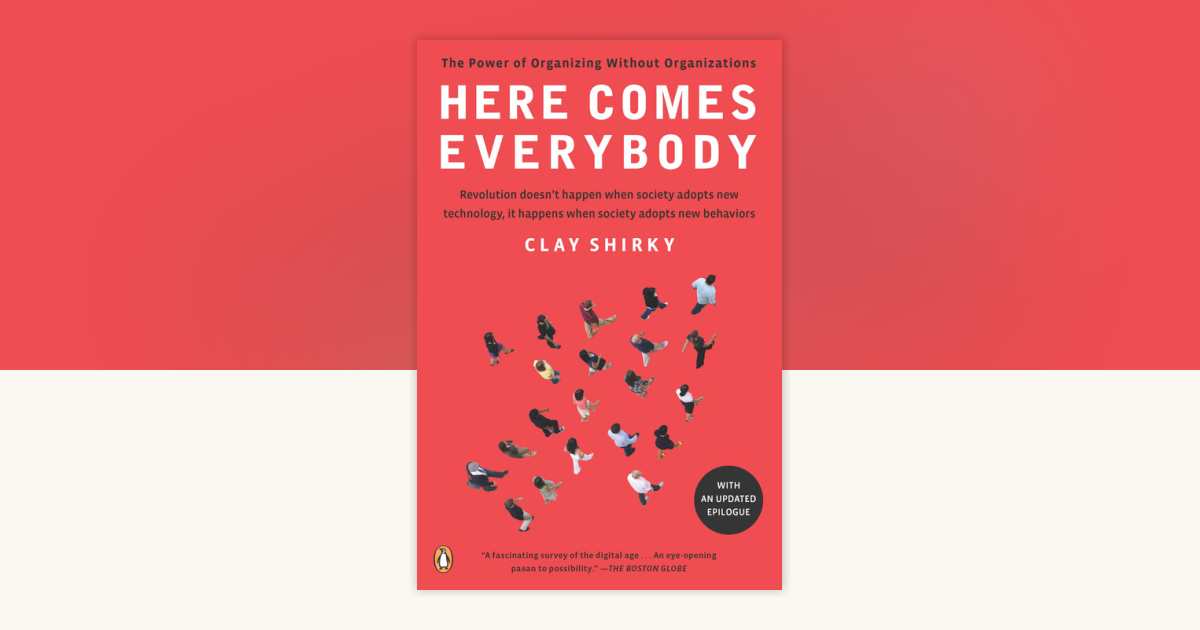
- https://www.linuxfoundation.org/resources/open-source-guides/building-leadership-in-an-open-source-community/
- https://www.carriemelissajones.com/blog/community-commitment-curve
- https://wptavern.com/pippin-williamson-on-building-a-community-around-your-open-source-project
- https://www.jonobacon.com/2019/04/29/open-source-example/
- https://www.snoyman.com/blog/2017/10/effective-ways-help-from-maintainers
- https://blog.discourse.org/2018/08/launching-a-successful-discourse-community/
- https://blog.discord.com/how-to-build-an-active-and-engaged-indie-game-community-with-discord-4a5be74d822e
- https://communityroundtable.com/best-practices/perks-community-wall-flower-users-lurk/
- https://opensource.com/business/11/1/six-ways-build-solid-community
- https://www.feverbee.com/strategy/
- https://cmxhub.com/build-a-thriving-community-from-scratch/
- https://www.i-scoop.eu/online-communities-social-communities-primer/
- https://www.zdnet.com/article/twelve-best-practices-for-online-customer-communities/
Licensing
Fundamentals
Opensource.com
Open source licensing: What every technologist should know
Learn about different types of open source licenses and get answers to common licensing questions.
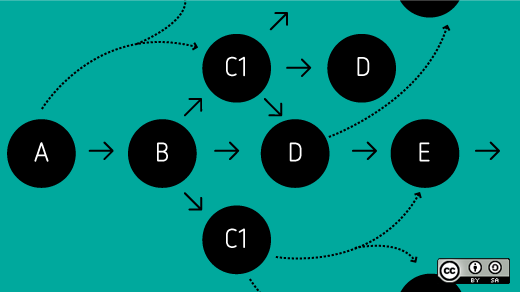
Copyleft Currents - Copyleft Currents
Basic open source software licensing
Information to get started understanding open source licensing. What is source code? Source code is the text file that a computer programmer uses to write a program. Source code files are processed…
Copyleft Currents - Copyleft Currents
What should my company know about open source?
A “cheat sheet” for entrepreneurs, lawyers, and engineers. Do we need an open source policy? You have a policy, whether it is written down or not. It could range from “no open sou…
https://blog.usejournal.com/understanding-open-source-and-free-software-licensing-c0fa600106c9
Further Reading:
- https://www.amazon.com/dp/B086G6XDM1/
- https://writing.kemitchell.com/2019/03/17/License-Utopia.html
- https://writing.kemitchell.com/2019/09/26/Tyranny-of-Time.html
- https://www.smashingmagazine.com/2010/03/a-short-guide-to-open-source-and-similar-licenses/
- https://itsfoss.com/open-source-licenses-explained/
- https://choosealicense.com/
Ratification
/dev/lawyer
Null Value
against demise of the hacker public license
Strategy
Dirk Riehle's Industry and Research Publications - Dirk Riehle
The Single-Vendor Commercial Open Source Business Model
Dirk Riehle Research, SAP Labs LLC Updated 2010-11-09: Renamed “commercial open source” to “single-vendor (commercial) open source” to be clear about the difference to distr…
Dirk Riehle's Industry and Research Publications - Dirk Riehle
Single-Vendor Open Source Firms and Intellectual Property Strategies (Video)
In this video, I explain the single-vendor open source business model (also: multi-licensing, open core) and in particular its intellectual property strategies. This talk is partly a reaction to th…
Ethical Licensing
https://ethicalsource.dev/definition/
The Hippocratic License 3.0: An Ethical License for Open Source.
The Hippocratic License (HL3) is an ethical source license that specifically prohibits the use of open source software to violate universal standards of human rights.

Copyleft Currents - heatherjmeeker
Good and not Evil: the Advent of Ethos Licensing
For years, my clients have asked me what to do about the “Good not Evil” license, which is most famously applied to JSON (JavaScript Object Notation), a widely used format for storing a…
/dev/lawyer
Heather Meeker on “Ethos Licensing
free and open is ethos licensing, too
Appendix
Changelog
v0.2
Added Entrepreneurship section with links from Calm Company.
v0.1
First batch of reading material made publicly available for crowd-powered editing.
Roadmap
- Better guiding text in between articles.
- Brief summary of each piece.
- Fast track and a scenic route.
